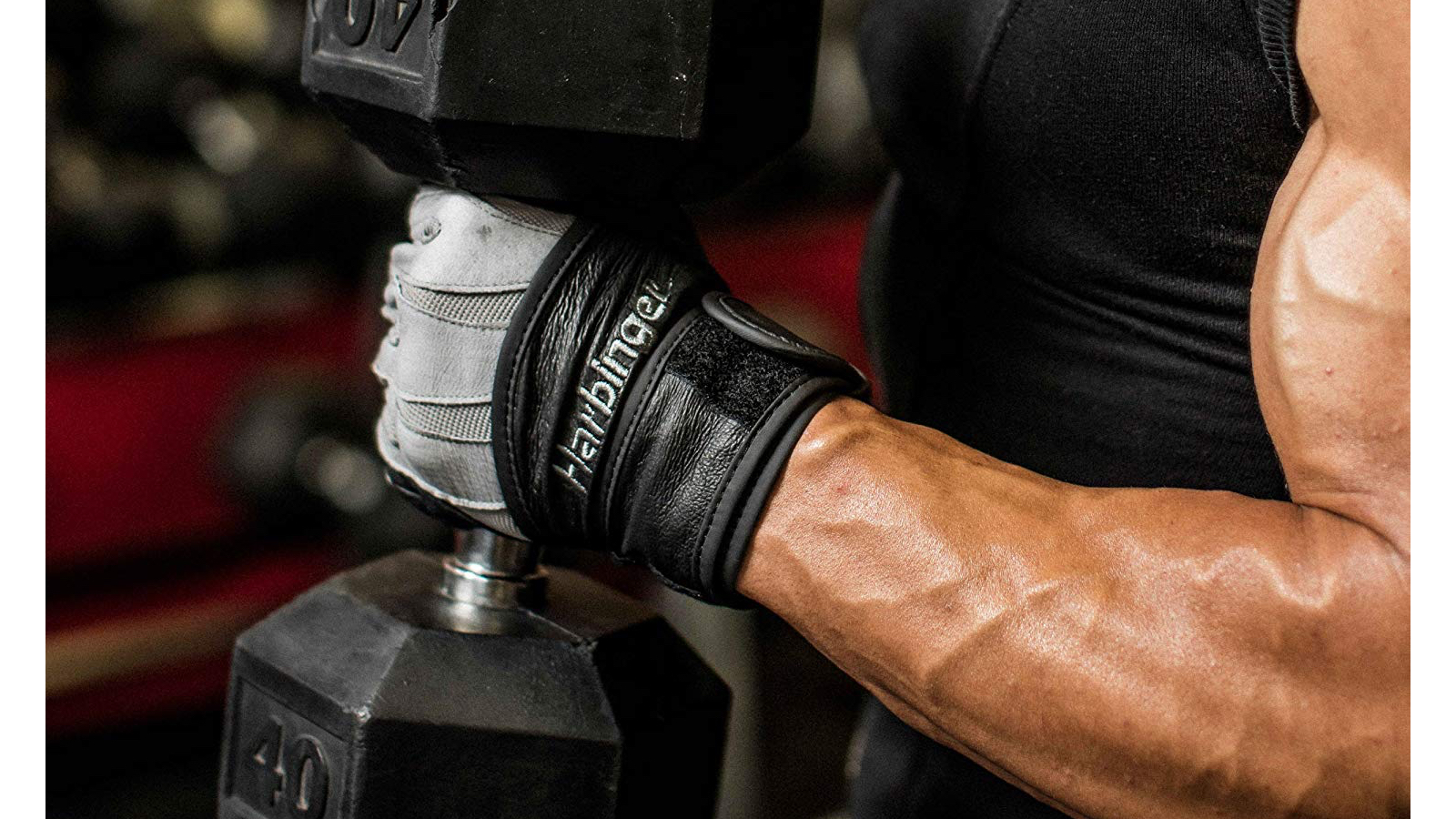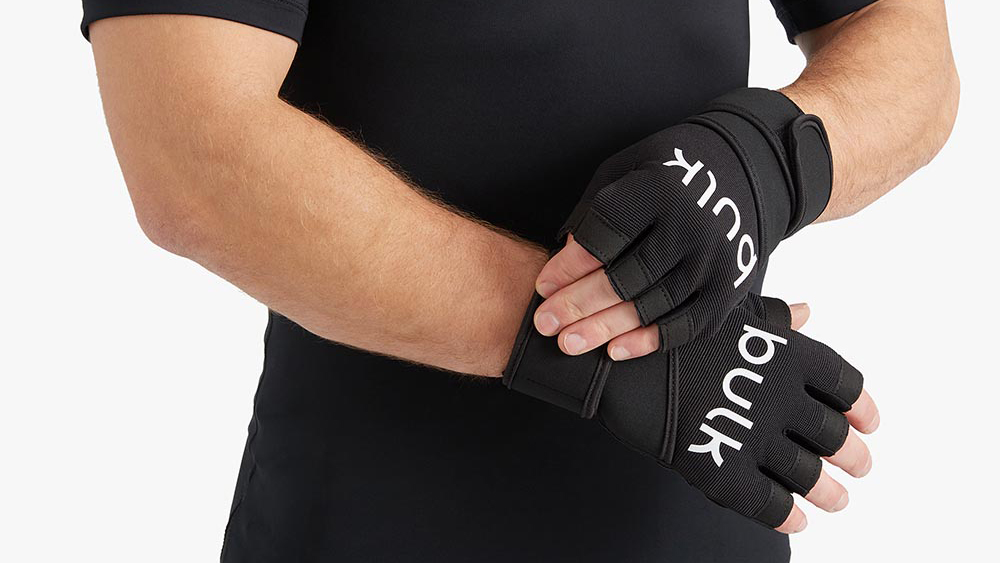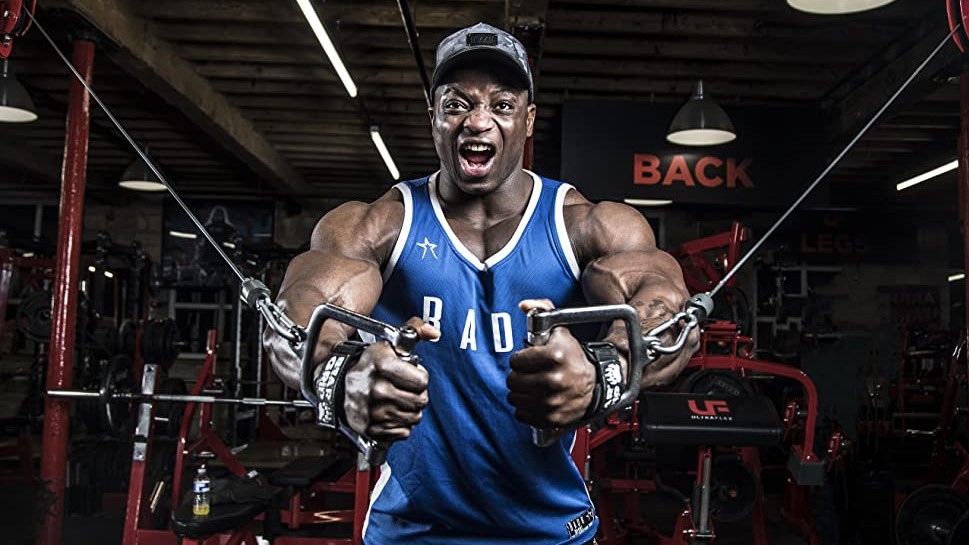8 reasons why you should wear gym gloves
You should pull on a pair of workout gloves for your next session, and not to beat the cold


Whether you’re back working out in the gym or sticking to the at-home workouts with your lockdown setup for now, a pair of gym gloves is a potentially useful addition to anyone’s workout arsenal. Many gym-goers may never have considered working out in gloves. You may currently be working out gloveless and thinking your hands are doing a perfectly good job by themselves thank you very much. But the addition of a pair of gloves can make a big difference, not only when lifting weights but also helping grip when performing exercises such as pull-ups or even using the rowing machine.
“Gloves can be great in certain situations to help avoid injury and look after your health when working out at the gym,” says Steven Virtue, fitness development manager at Total Fitness.
Whether it’s to protect your skin from rips, tears, blisters and callouses or simply for hygiene reasons, gloves can make a positive difference to your workout routine in many different ways.
Once you’ve read our reasons why gym gloves are an essential addition to your workout kitbag, head over to our best gym gloves buying guide to find the ideal gloves for your workout needs, with the best gloves recommended for all different levels and types of exercise.
- Having the best weights bench is also 'handy'
- How to do Olympic lifts
- The best barbell workout we've tried
They’re good for beginners

For those new to gym work, gloves can be a great way to ease you into a workout. “If you’re not used to lifting weights, you may struggle with maintaining your grip, which can be dangerous when handling heavy pieces of equipment such as dumbbells or barbells,” says Virtue. “Gloves can help you get used to gripping weights while you learn to practise correct lifting form.”
For those new to gym work, gloves can be a great way to ease you into a workout. “If you’re not used to lifting weights, you may struggle with maintaining your grip, which can be dangerous when handling heavy pieces of equipment such as dumbbells or barbells,” says Virtue. “Gloves can help you get used to gripping weights while you learn to practise correct lifting form.”
They help avoid callouses

One of the main jobs of gloves, in addition to aiding grip, is to protect your skin. This particularly applies to gymgoers with sensitive skin that rubs or tears easily.
Get all the latest news, reviews, deals and buying guides on gorgeous tech, home and active products from the T3 experts
“The most common issue people report is calluses, which can be painful,” says Virtue. “Using gloves to lift when you’re prone to painful calluses can help protect your hands by reducing friction between the equipment and your skin.”
They aid hygiene

Virtue highlights another advantage to using gloves that has become particularly prevalent during recent times – the fact that many of us have become more aware of the germs that surround us.
“Even though gyms and equipment are cleaned regularly to ensure they’re a safe place to exercise, this may make returning to the gym hard for some people as they worry about using communal equipment,” he says. “Wearing gloves can help you feel more comfortable and aid in reducing any worries surrounding the spread of germs.”They soak up sweat
They soak up sweat
Some people sweat more than others, so if you’re prone to perspiring more heavily than most – especially on the palms of your hands – weightlifting gloves can help reduce the chances of the barbell slipping out of your hands like a greased pig, leaving you red-faced in front of everyone in the gym.
They mean you don’t require chalk
For more serious lifters, wearing gloves reduces the requirement for you to chalk up your hands before every lift due to the extra grip provided by your gloved hands – some gloves even feature suede fabric on the palms to improve grip. This means less mess, especially as many gyms no longer provide chalk.
They prevent blisters, particularly while rowing
If you’re new to the rowing machine, you might find that if you go from zero hours of rowing a week to 3 or 4, you quickly develop blisters on your hands due to gripping the machine’s handle. You’re then stuck in a cycle of the newly developed blisters preventing you from rowing, and when they heal you potentially open them up again when you get back on the rower.
Gloves can solve this problem firstly by helping to prevent blisters in the first place, but they also mean you can keep using the rowing machine even if blisters do form on your palms due to the protection and reduction in friction they provide to the damaged skin.
They’re helpful if you have small hands
Not everyone has hands the size of dinner plates, making grabbing barbells and chin-up bars appear as easy as breathing.
For those with smaller hands who sometimes find gripping bars awkward, a pair of gloves can assist by providing padding, especially when it comes to helping you curl your fingers round the bar.
Some offer increased wrist support
Certain gym gloves feature wrist-support straps as part of their design. These wrap around your wrists to help keep them stable when you’re lifting heavier weights, aiding your lifting form and helping you raise and stabilise a load that’s heavier than what your grip can take on.
They are also useful for anyone who’s suffering from wrist-based injuries, as a wrist wrap can help you continue to lift, although we should add it’s worth getting advice from your doctor or physio before lifting with an injury.
Conclusion
Ultimately of course, whether you wear gloves or not is down to personal preference. You might find you grip better without them, but for days when you’re planning to lift heavy weights, or if you don’t want rough callouses on your hands, gym gloves are an essential purchase.

When not seeking out new running and cycling trails, Howard writes about all things health and fitness. As well as T3, he's written for a plethora of websites, newspapers and magazines including Runner’s World, Cycling Weekly, Trail Running, Women’s Running, ShortList, Fit&Well, Red Bulletin and Wareable. When not running ultramarathons he's taking on MTB singletrack trails and hiking all around the world. As a side hustle, Howard is also on an ongoing quest to find the country’s best cinnamon bun.